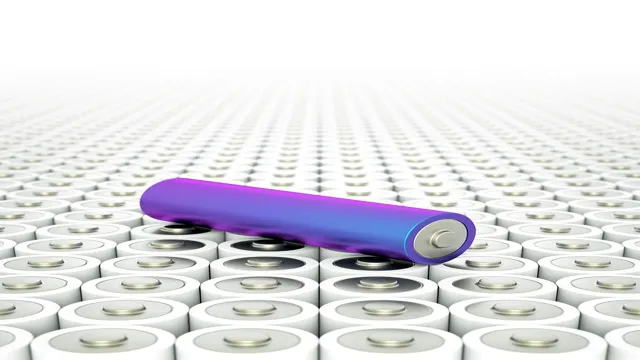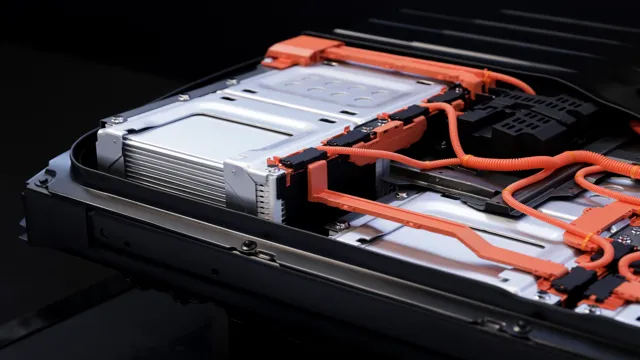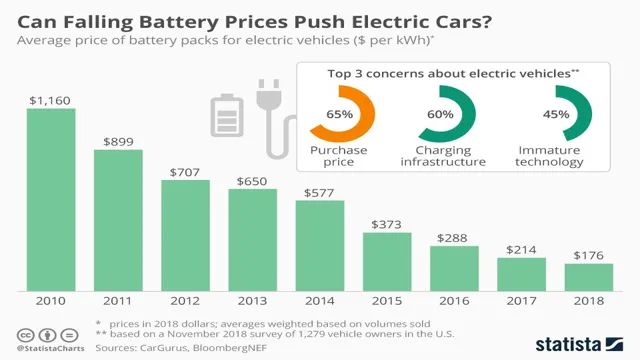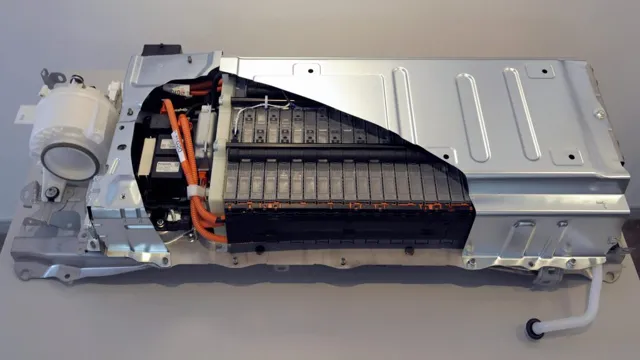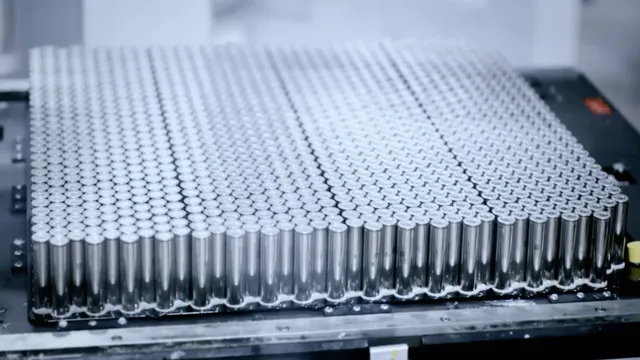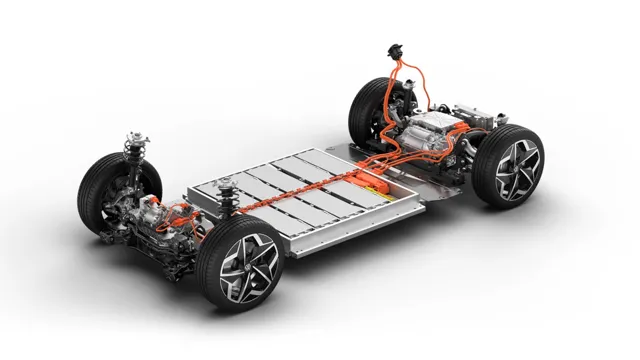Powering Towards a Cleaner Future: Exploring the Environmental Impact of Battery Electric Cars
Electric cars have been touted as the solution to the pollution problem caused by gas-powered vehicles. However, with the rising popularity of battery electric cars, people are beginning to question if they contribute to pollution in any way. It’s a valid question to ask, given the complexity of environmental issues and the ever-evolving science behind electric cars.
In this blog post, we’ll examine the relationship between battery electric cars and pollution to provide a clear answer to this question. So, buckle up and get ready to learn more about the role of electric cars in the fight against pollution.
The Impact of Gasoline Cars on Pollution
Battery electric cars are increasingly seen as a solution to the environmental problems caused by gasoline-powered vehicles. Gasoline cars pollute the air with harmful emissions, contributing to air pollution and global warming. Battery electric cars, on the other hand, produce no tailpipe emissions, making them a cleaner and more sustainable alternative.
By switching to an electric vehicle, drivers can reduce their carbon footprint and help to preserve the environment, while also enjoying the benefits of a quieter, smoother ride. While there are still some challenges to overcome in terms of charging infrastructure and range anxiety, the benefits of electric cars are clear, as they offer a cleaner, greener future for us all. So, if you care about the environment and want to do your part to combat climate change, why not consider switching to a battery electric car today?
How Gasoline Cars Emit Pollution
Gasoline cars emit pollutants that have a significant impact on the environment and our health. When gasoline is burned in the engine, it produces gases like carbon dioxide, nitrogen oxides, and sulfur dioxide, among others, that contribute to air pollution. Carbon dioxide is a greenhouse gas that traps heat in the atmosphere, contributing to global warming.
Nitrogen oxides and sulfur dioxide can lead to acid rain and smog. In addition to harmful gases, gasoline cars also emit volatile organic compounds and particulate matter, which can be inhaled into our respiratory system, causing asthma and other respiratory problems. All of these pollutants from gasoline cars have a significant impact on our environment and health.
Thus, it is essential to transition towards sustainable transportation to reduce the harmful effects of these pollutants.

Environmental Impact of Gasoline Cars
Gasoline cars are notorious for their negative impact on the environment. The combustion of gasoline releases harmful pollutants such as carbon monoxide, nitrogen oxides, and particulate matter into the air, which can lead to respiratory problems and other health issues for humans and wildlife alike. These pollutants also contribute to the formation of smog and acid rain, which harm the environment.
Additionally, the extraction and refining of crude oil to produce gasoline emits greenhouse gases and results in oil spills that harm marine life and ecosystems. However, advancements in technology have led to the creation of more efficient gasoline engines and hybrid vehicles, which produce fewer emissions and require less fuel. It’s essential that as individuals, we do our part by reducing our car usage, carpooling, and opting for alternative modes of transportation such as biking, walking, and public transit.
By doing so, we can significantly reduce the negative impact of gasoline cars on the environment and improve air quality for ourselves and future generations.
The Role of Battery Electric Cars in Pollution Reduction
Battery electric cars have the potential to play a significant role in reducing pollution. These vehicles run solely on electric power, eliminating the emissions that come from traditional gasoline-powered vehicles. In addition to reducing pollution in urban areas, electric cars can also help mitigate the broader impacts of pollution on our planet.
As battery technology and charging infrastructure continue to improve, the distance electric cars can travel on a single charge is getting longer. This means more people can switch to these vehicles without worrying about finding charging stations every few miles. Although electric cars are not a panacea for pollution reduction, they represent a promising step forward in the fight against environmental degradation.
Moreover, driving a battery electric car is already a more economical solution than driving a traditional vehicle. As power grids switch to green energy, the life-cycle of electric vehicles is projected to be even lower in pollution emissions.
How Battery Electric Cars Work
Battery electric cars are rapidly becoming a popular way to reduce pollution around the world. They work by relying on a large battery to power an electric motor that drives the car. This means that no gasoline or diesel is required to power the vehicle, which results in zero emissions.
As a result, electric cars are seen as a promising way to reduce air pollution in urban areas, where poor air quality can cause health problems for residents. In addition to reducing pollution, electric cars are also very efficient and can often travel much farther than traditional vehicles on a single charge. While they can be more expensive to purchase, they are usually cheaper to maintain and operate over time.
As battery technology continues to improve, electric cars are becoming an increasingly viable option for people looking to reduce their environmental impact.
Environmental Impact of Battery Electric Cars
Battery electric cars are among the most significant innovations in recent years that aim to reduce the impact of transportation on the environment. These vehicles operate solely on an electric motor powered by rechargeable batteries, which, unlike gasoline-powered vehicles, do not emit harmful pollutants. They significantly contribute to pollution reduction compared to internal combustion engine (ICE) vehicles, making them an excellent alternative for environmental enthusiasts.
Moreover, their batteries can be charged using renewable energy sources like solar or wind, which further reduces their carbon footprint. Battery electric cars’ adoption can contribute to much more than lowering pollution levels; it can help combat climate change and protect the environment we live in. With increased access to charging stations and improved battery technology, these vehicles will become the norm, and our planet will be better off for it.
Comparison of Battery Electric Cars to Gasoline Cars
Battery electric cars are undeniably more environmentally friendly than gasoline cars. Switching to battery electric cars has been shown to significantly reduce pollution levels, as they emit no greenhouse gases or harmful pollutants, unlike gasoline cars. In fact, battery electric cars can help reduce air pollution, which is a significant health threat to humans, animals, and the environment.
Additionally, battery electric cars are more efficient than gasoline cars, which means they require less energy to run. While there are arguments against electric cars, such as the source of the electricity used to charge the batteries, they are a step in the right direction toward a cleaner and more sustainable future. As consumers begin to recognize the benefits of battery electric cars, demand is expected to grow, leading to a reduction in the production costs of these vehicles.
Ultimately, the role of battery electric cars in pollution reduction cannot be underestimated, and it is up to us as individuals to consider this when making our next vehicle purchase.
Environmental Benefits of Driving a Battery Electric Car
Driving a battery electric car can greatly reduce pollution and provide significant environmental benefits. Unlike gasoline-powered cars, electric cars do not produce harmful emissions such as carbon dioxide, nitrogen oxides, and particulate matter, which can cause respiratory problems and contribute to climate change. In addition, battery electric cars also do not require oil changes or emit harmful fluids and gases like gasoline and diesel cars do.
By reducing the reliance on fossil fuels, electric cars mitigate the impacts of oil spills, pipeline leaks, and other environmental disasters. Moreover, electric cars are also quieter and produce much less noise pollution than traditional vehicles. As more renewable sources of power are integrated into the electricity grid, the environmental benefits of driving an electric car will only continue to increase.
By switching to a battery electric car, individuals can make a significant contribution towards a cleaner, healthier, and more sustainable future for our planet.
Reducing Greenhouse Gas Emissions
Driving a battery electric car provides numerous environmental benefits, primarily related to reducing greenhouse gas emissions. Unlike traditional gasoline-powered cars, battery electric cars do not emit tailpipe pollutants and have zero emissions. This means that they do not contribute to air pollution, which can have detrimental effects on our health and the environment.
Additionally, the production of electricity used to power battery electric cars can be generated from renewable sources, such as wind or solar, further reducing greenhouse gas emissions. Furthermore, driving battery electric cars can also decrease our dependence on fossil fuels and promote energy independence. Overall, driving battery electric cars can have significant positive impacts on the environment.
Improving Air Quality
Driving a battery electric car can provide numerous environmental benefits, particularly when it comes to air quality. Unlike traditional gasoline-powered cars, electric vehicles produce zero exhaust emissions, meaning they don’t release harmful pollutants such as particulate matter, sulfur dioxide, and nitrogen oxides into the air. These pollutants can have serious health consequences, including respiratory problems, heart disease, and even premature death.
By driving an electric car, you can help improve air quality and reduce your carbon footprint. Additionally, the energy used to charge electric vehicles can come from clean, renewable sources such as wind or solar power, further reducing emissions and environmental impact. So not only can driving a battery electric car save you money on gas and maintenance costs, but it can also contribute to a cleaner and healthier planet.
Conclusion
In conclusion, battery electric cars are the ultimate eco-friendly solution for reducing pollution. They don’t emit harmful gases, they operate quietly, and they run on renewable energy. However, we do understand that electricity generation is not always clean, and the batteries themselves have a carbon footprint.
But the impact of these challenges is relatively small when compared to the pollution generated by traditional gas-powered cars. So, if you want to make a positive impact on the environment and reduce your carbon footprint, hop in a battery electric car and leave the pollution behind!”
FAQs
What is a battery electric car?
A battery electric car is a vehicle that is fully powered by an electric battery. It does not produce any emissions while driving.
How does a battery electric car help reduce pollution?
Battery electric cars do not produce any emissions while driving, which significantly reduces air pollution. Additionally, they can be powered by renewable energy sources, further reducing pollution.
What is the lifespan of a battery in an electric car?
The lifespan of an electric car battery varies depending on the make and model, but typically ranges from 8-10 years. However, with proper maintenance, some batteries can last up to 20 years.
What is the environmental impact of producing electric car batteries?
Producing electric car batteries can have a significant environmental impact due to the mining and processing of raw materials, as well as the energy required to manufacture the battery. However, many manufacturers are making efforts to reduce this impact by implementing sustainable practices and sourcing materials responsibly.

